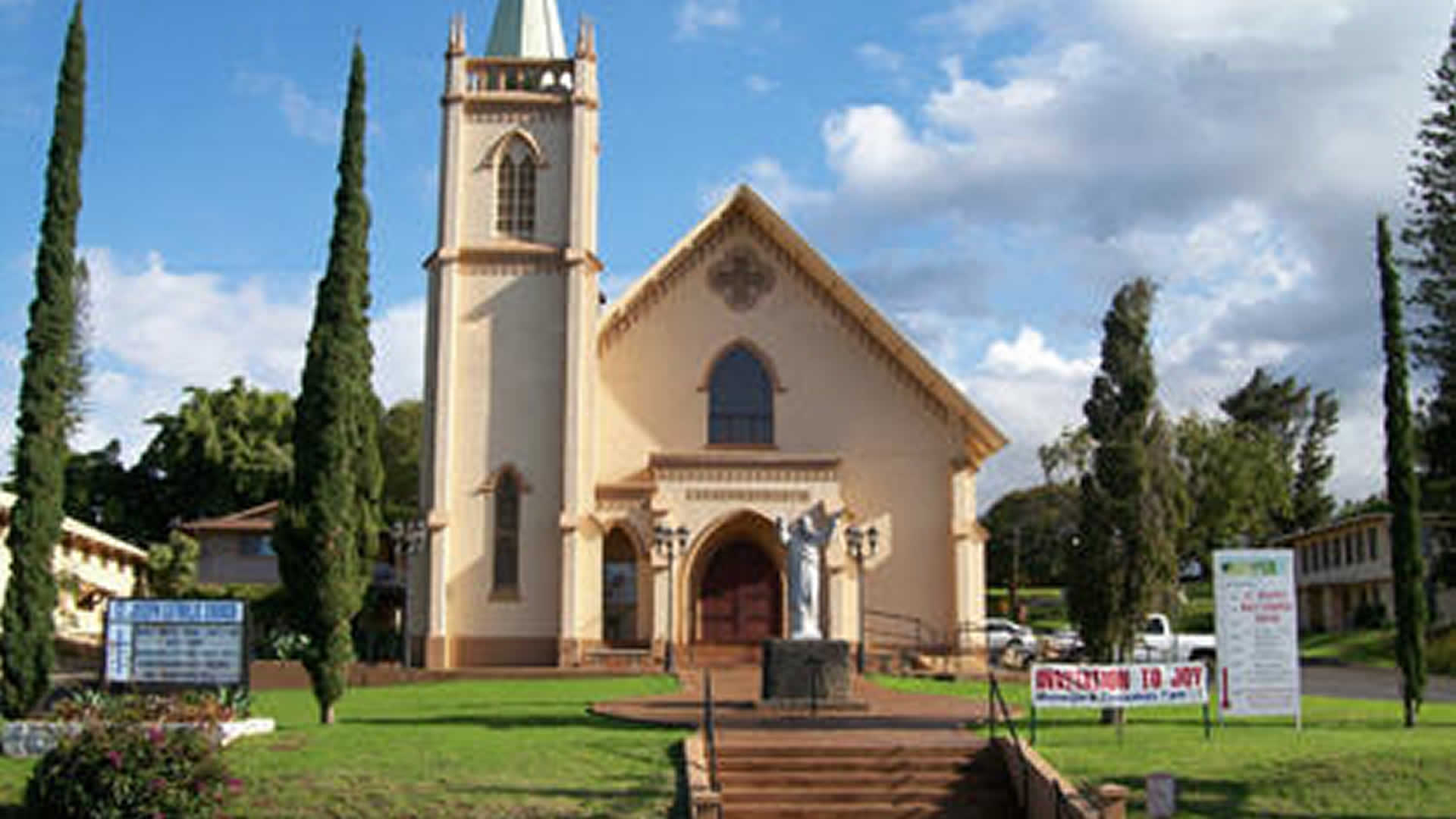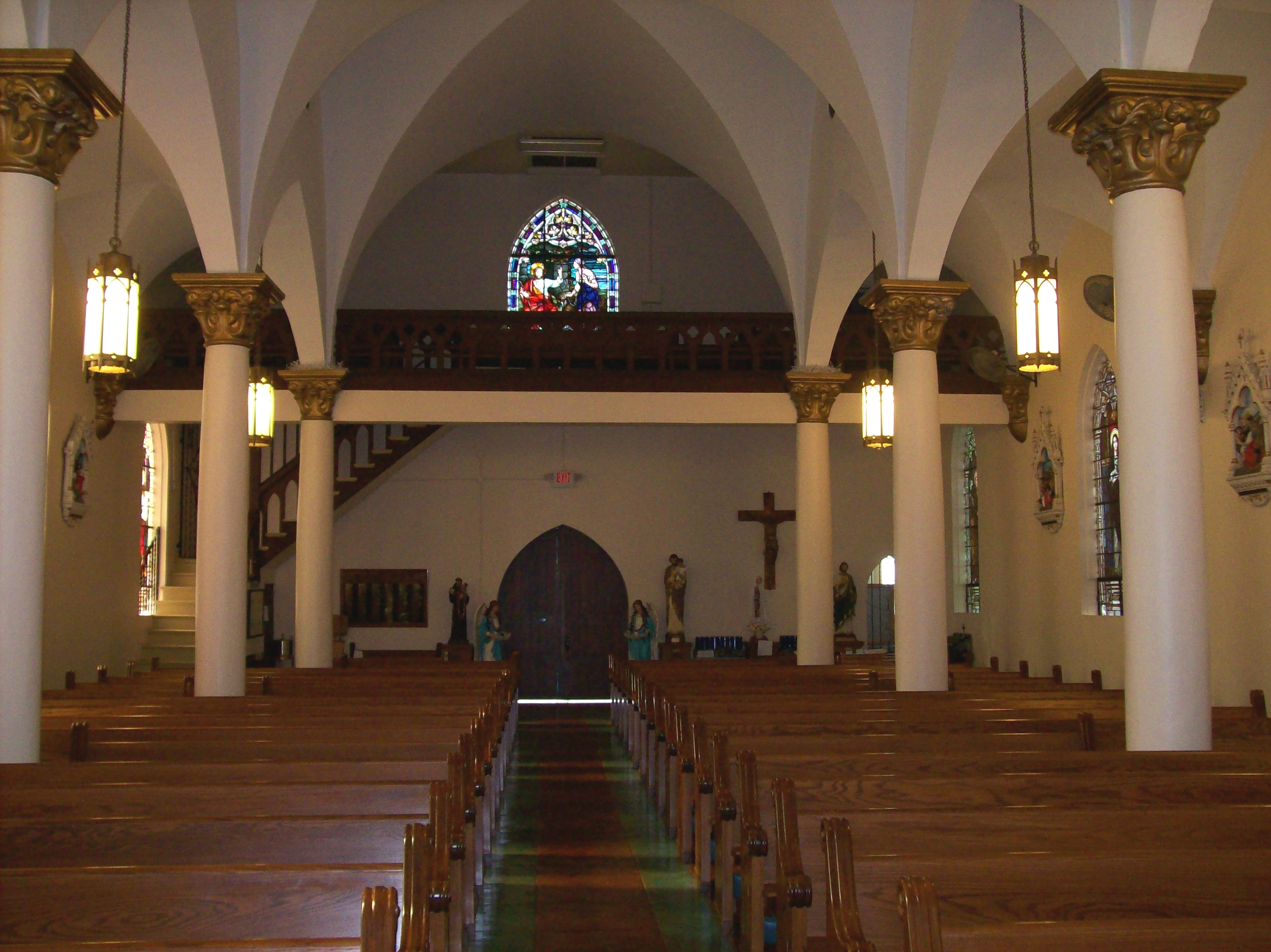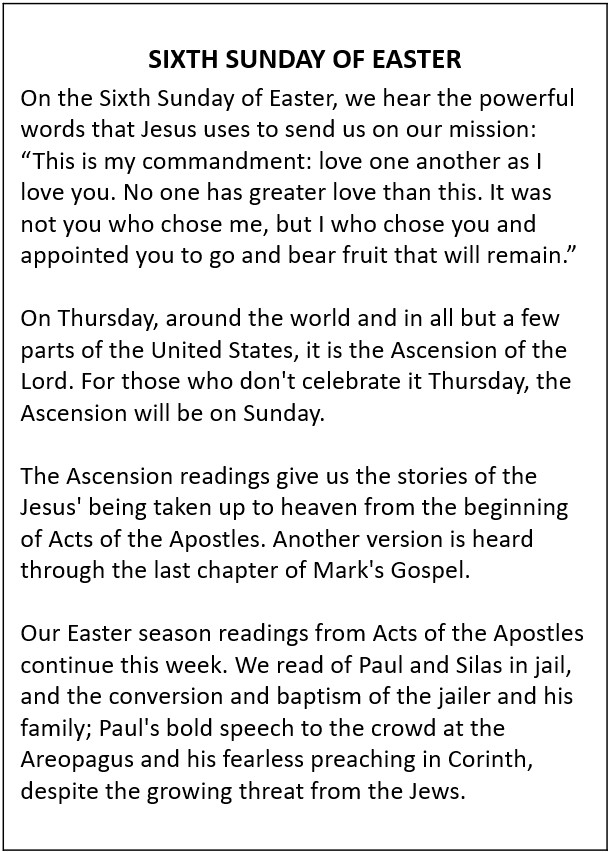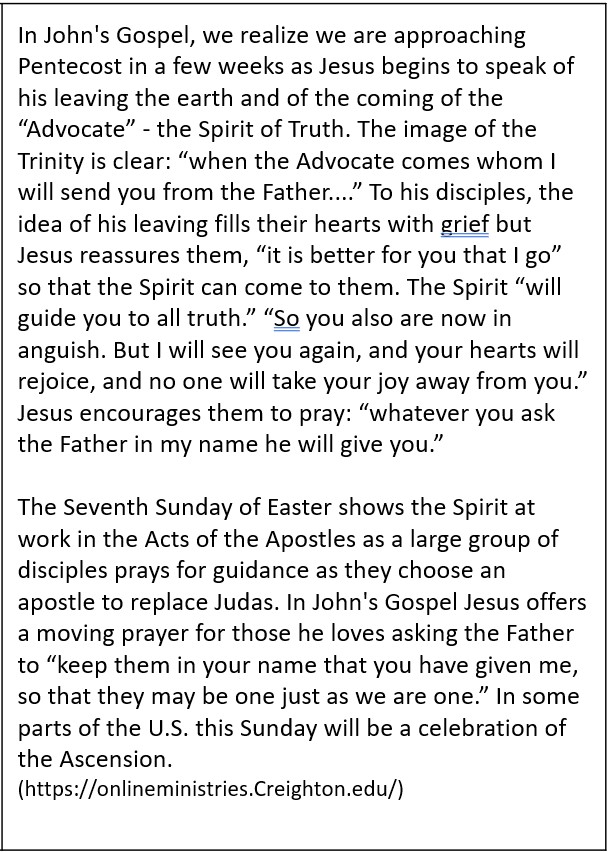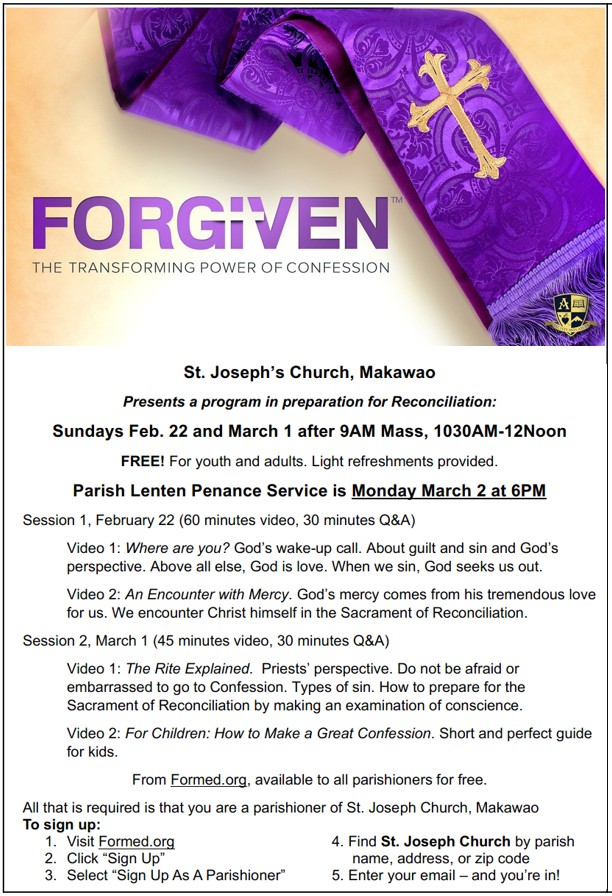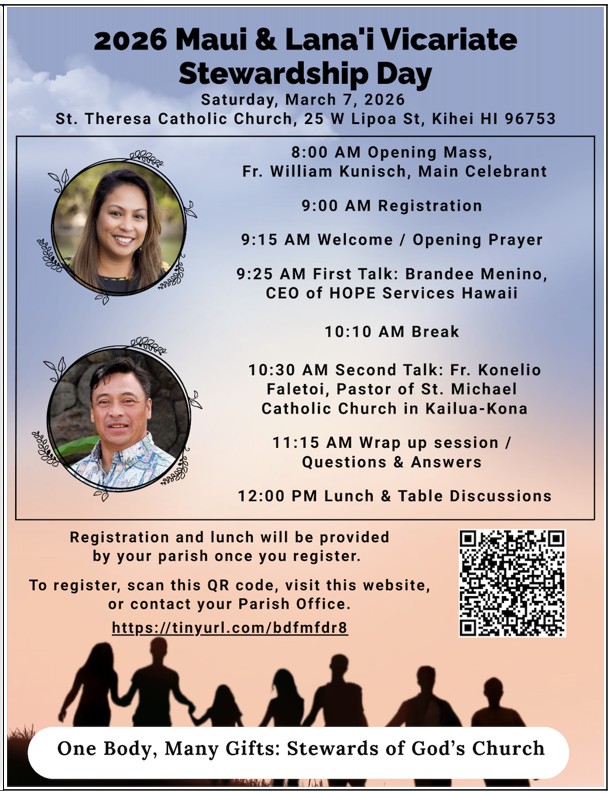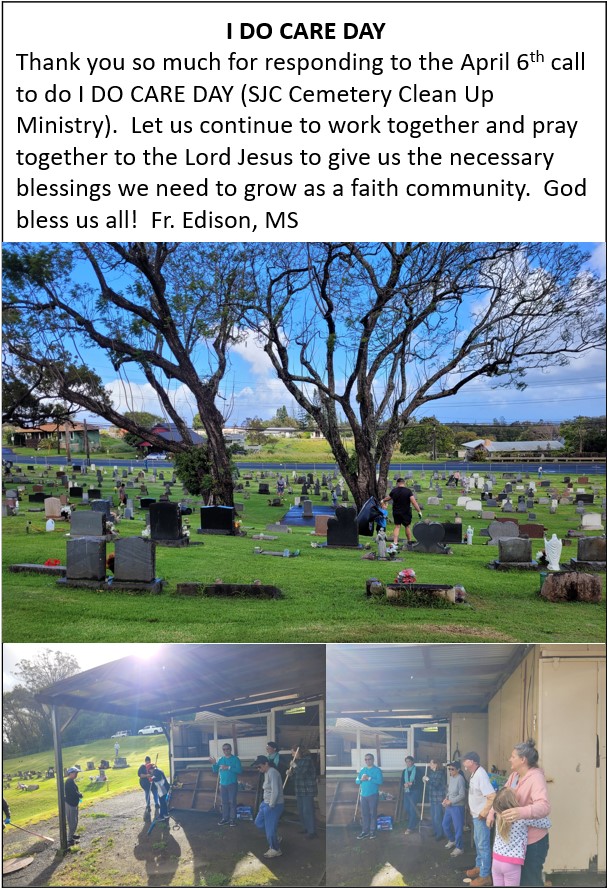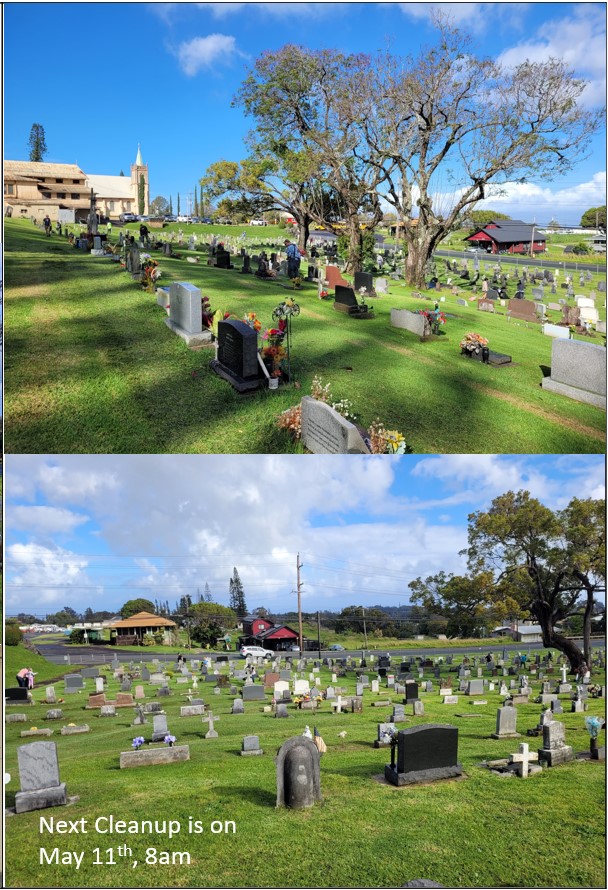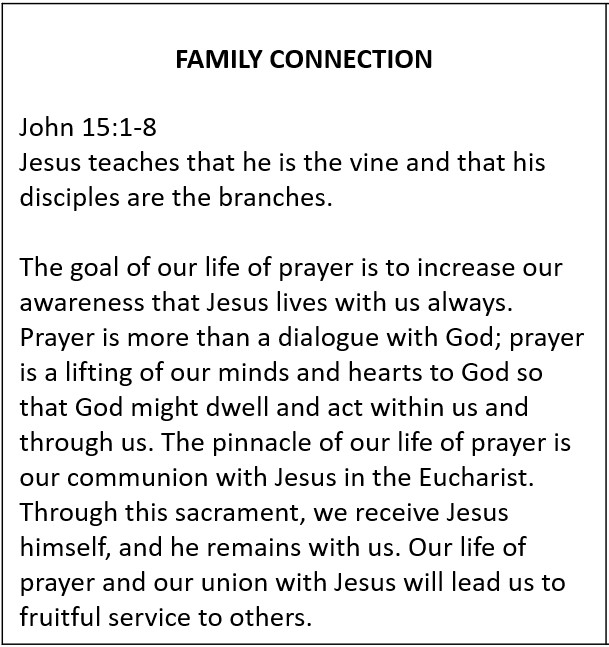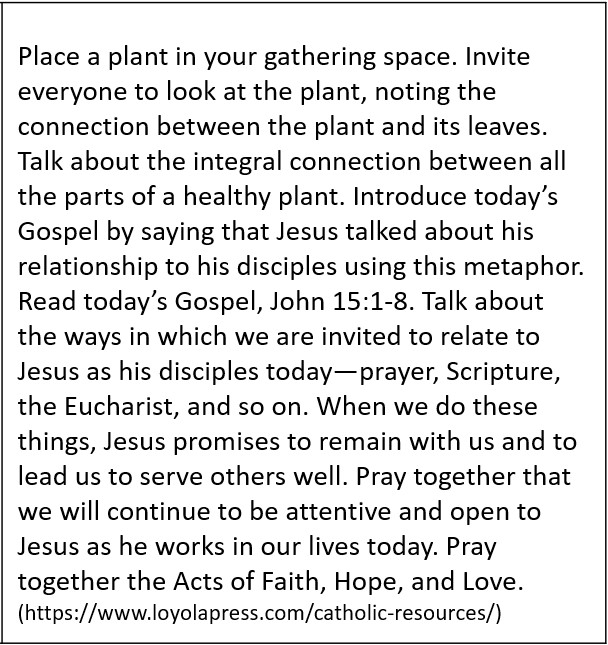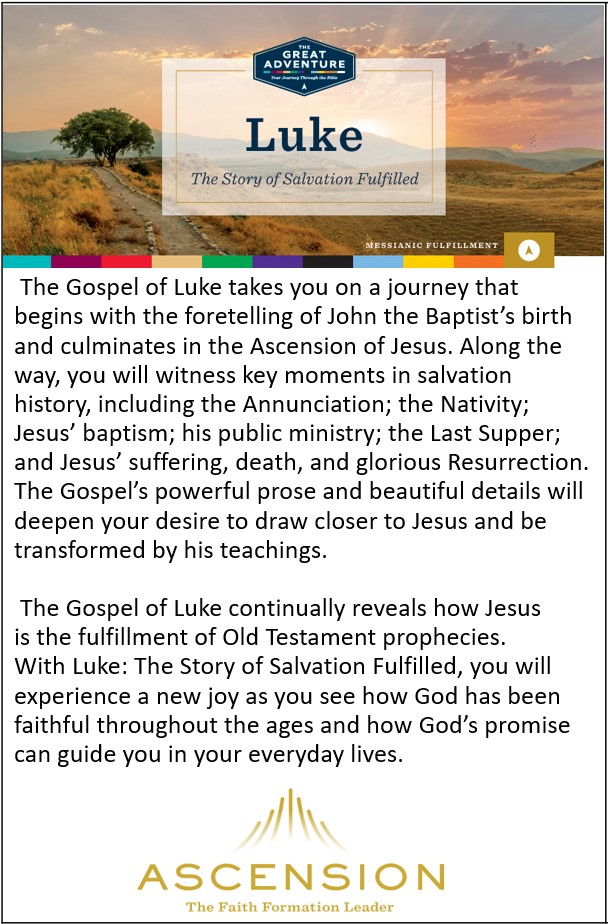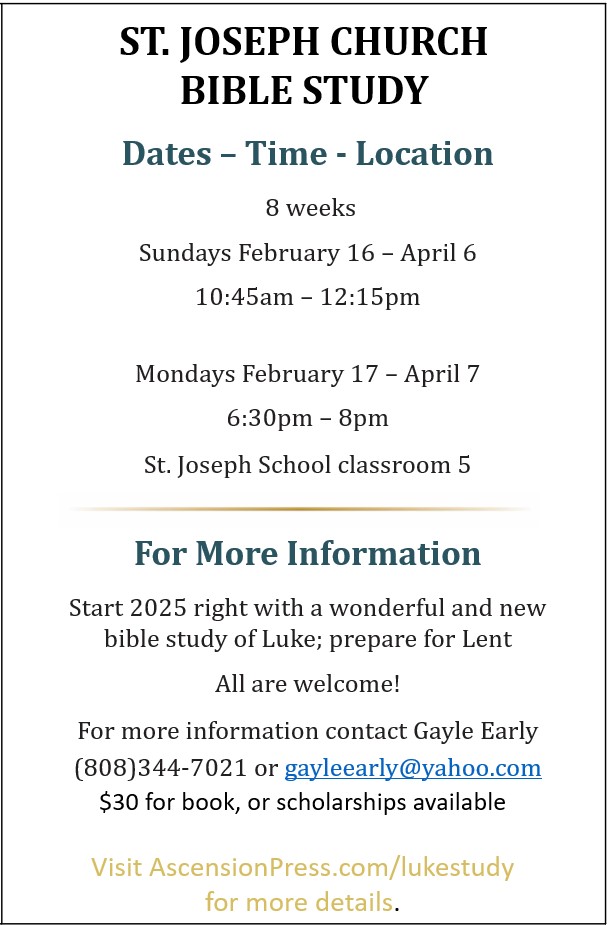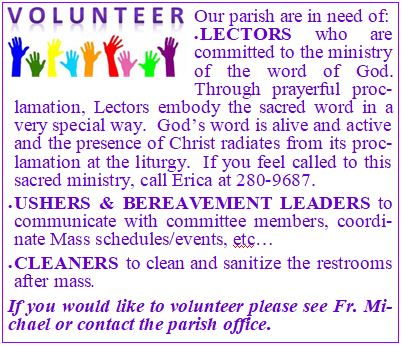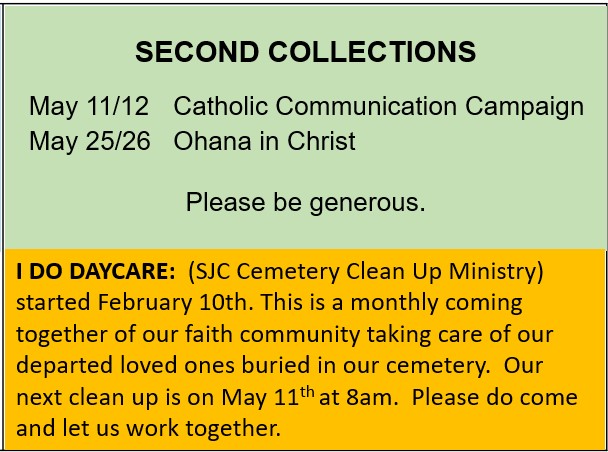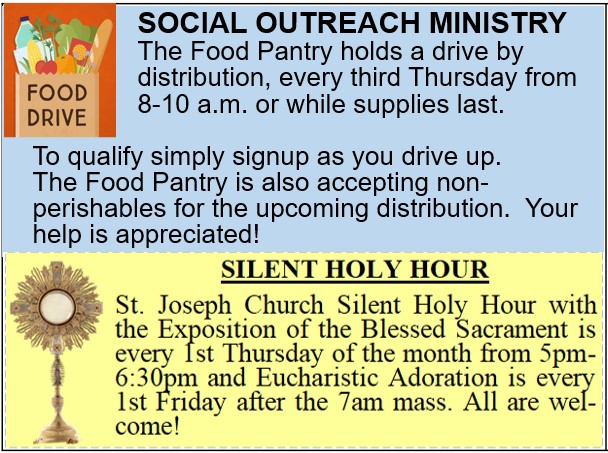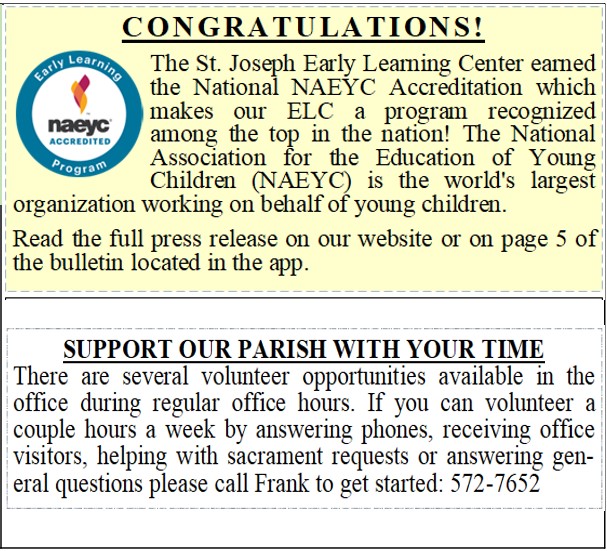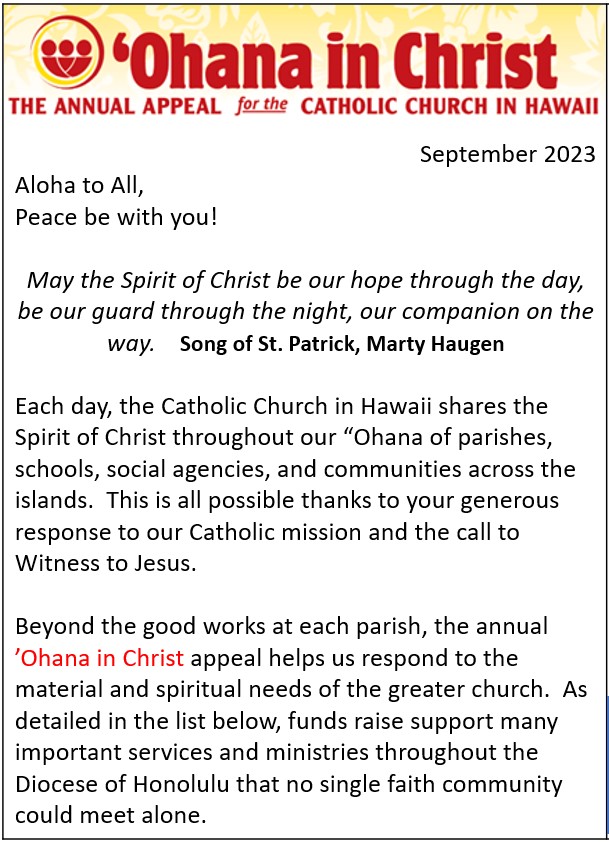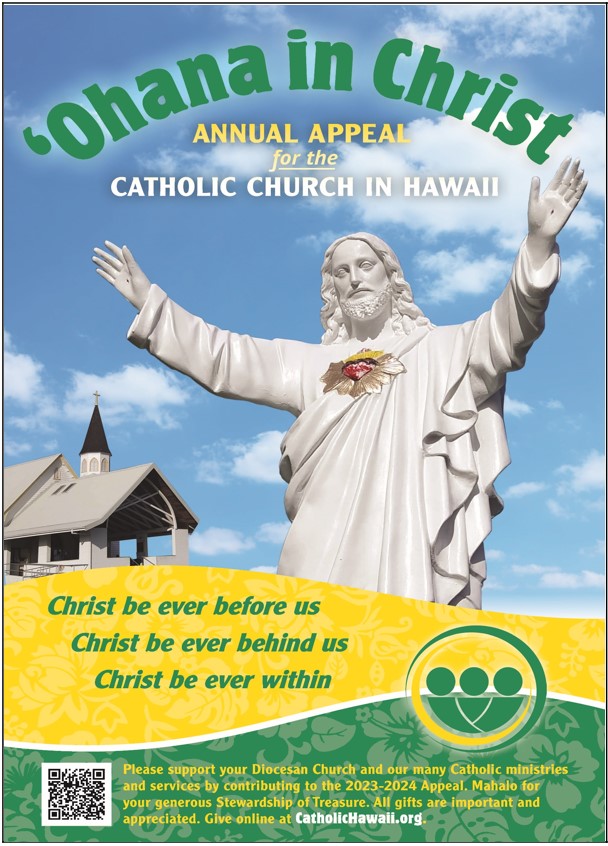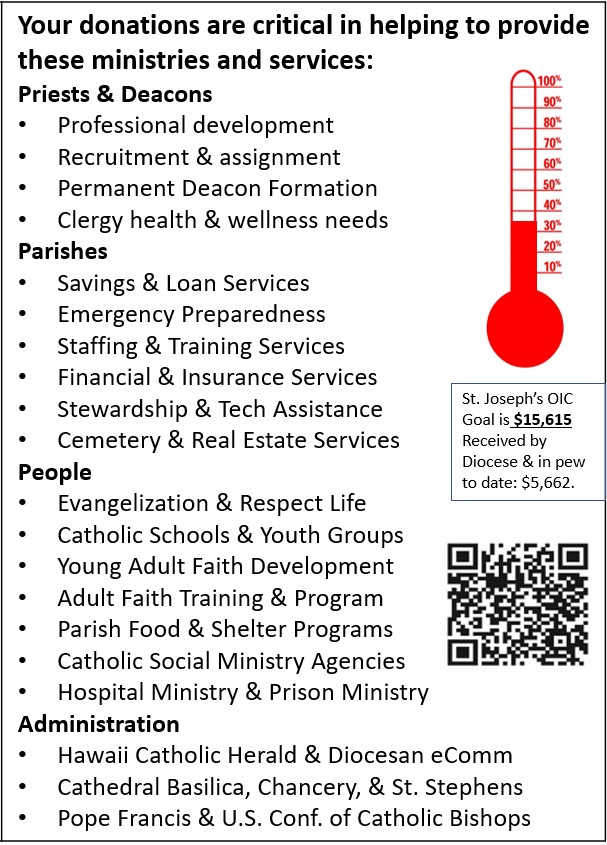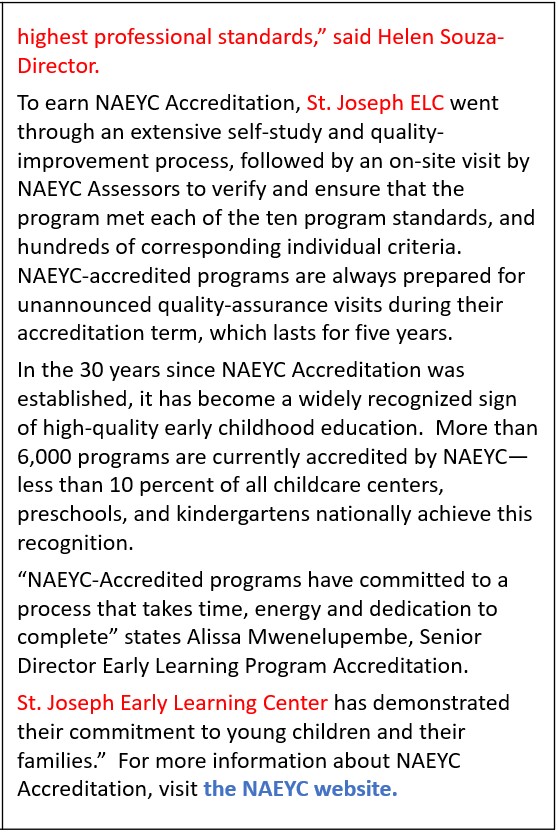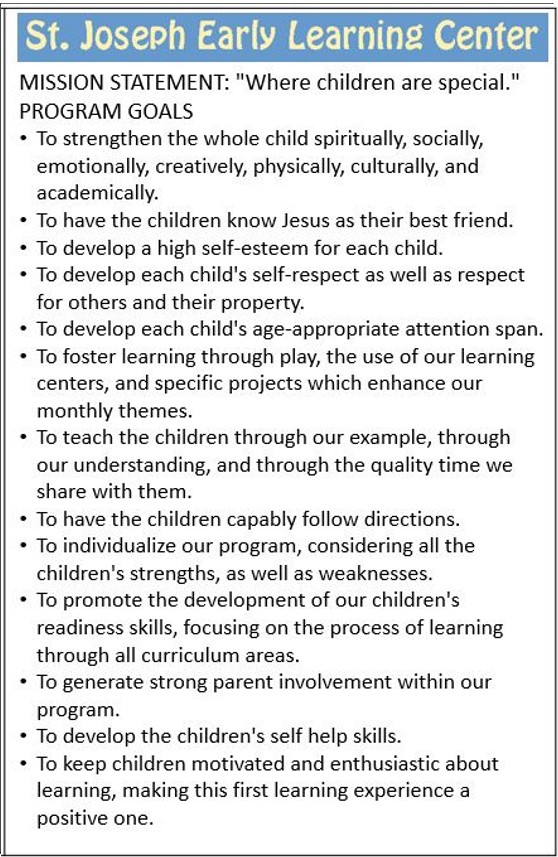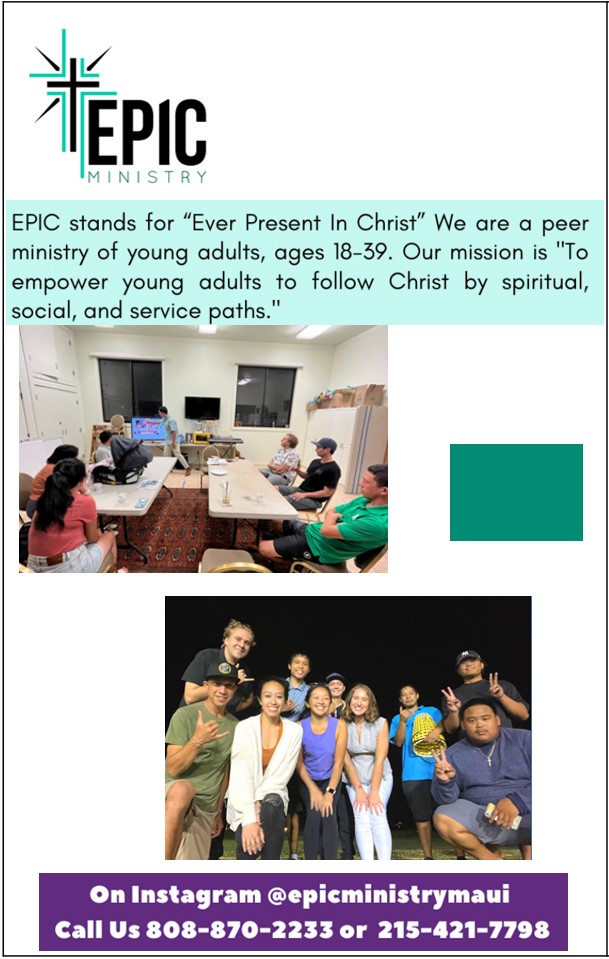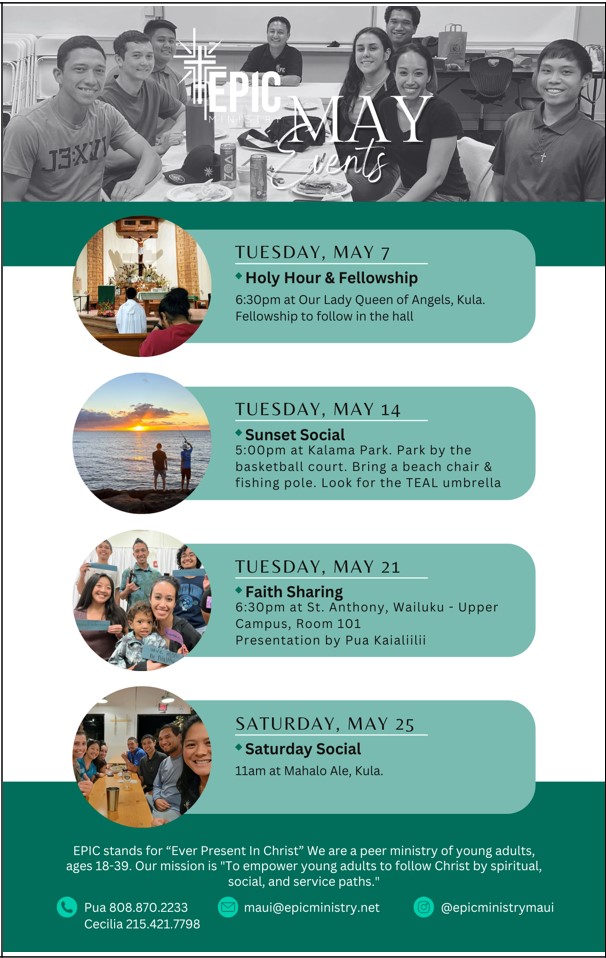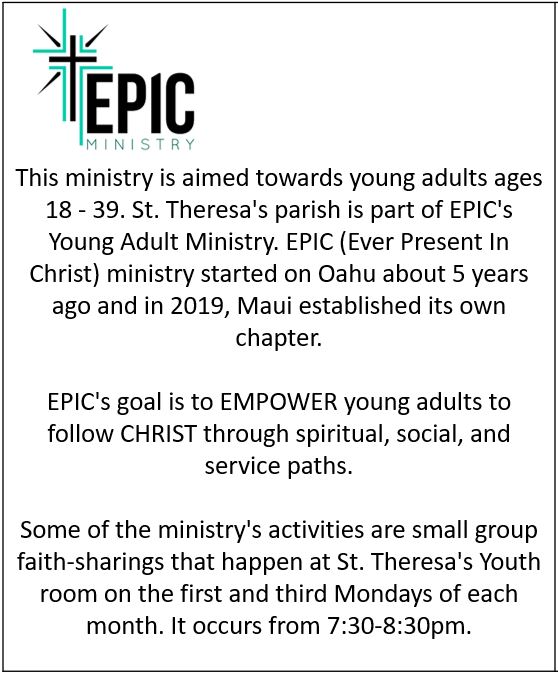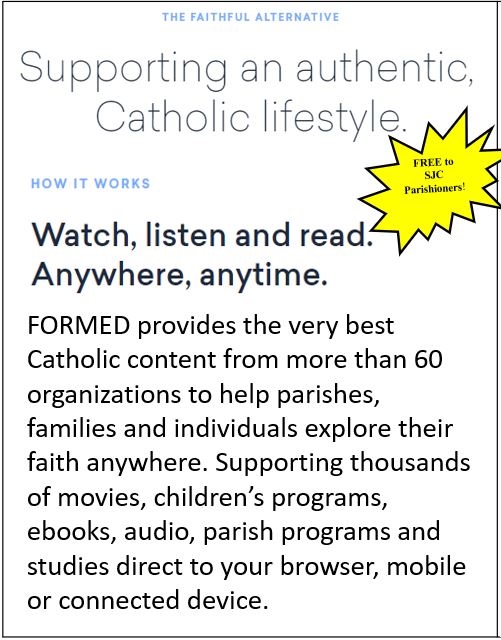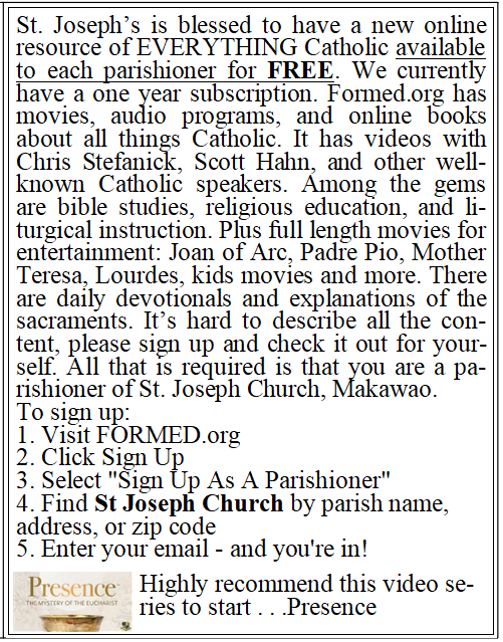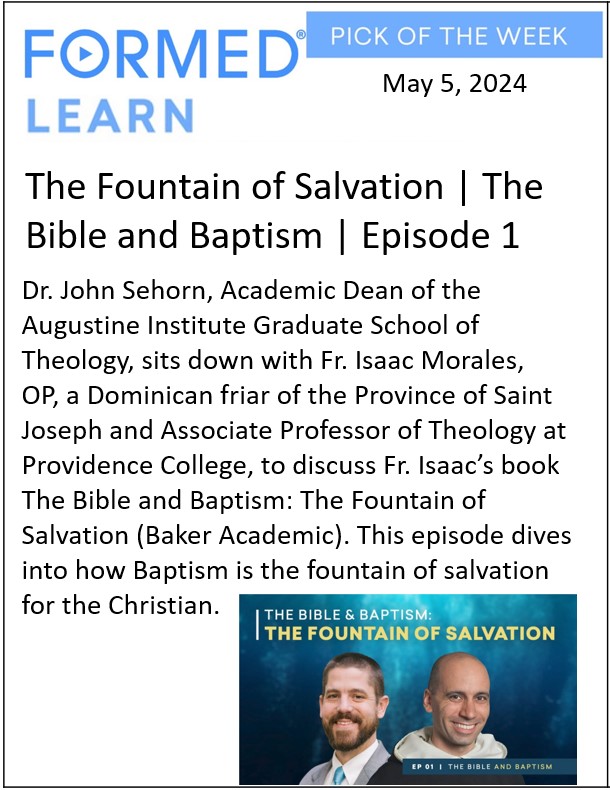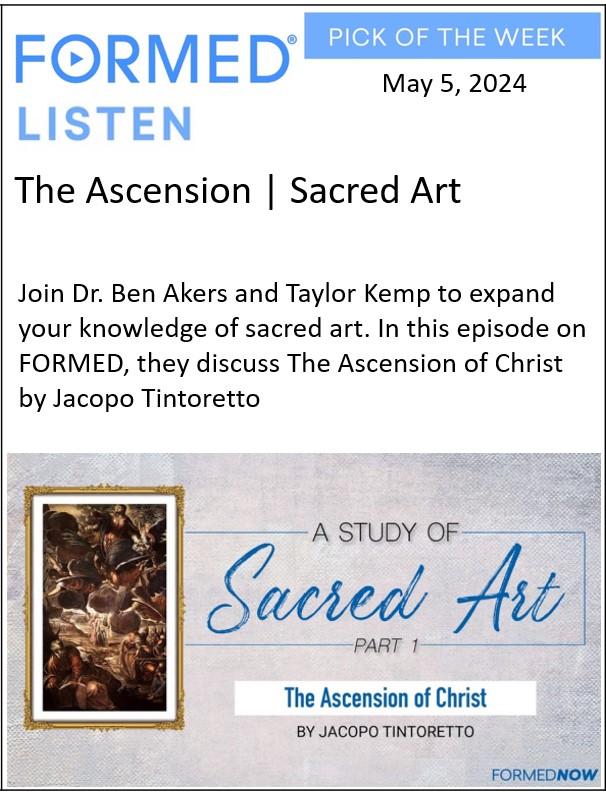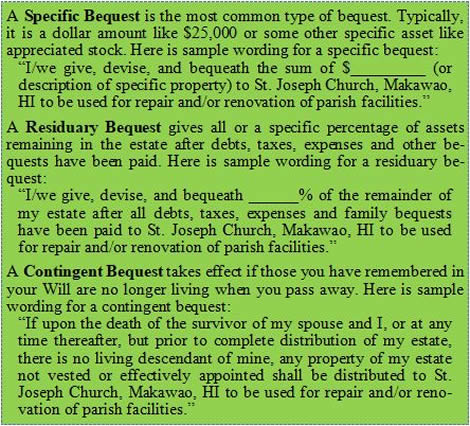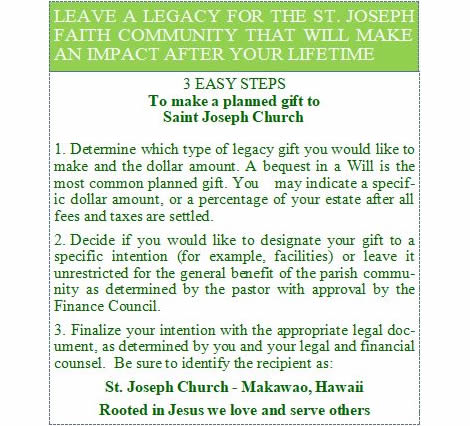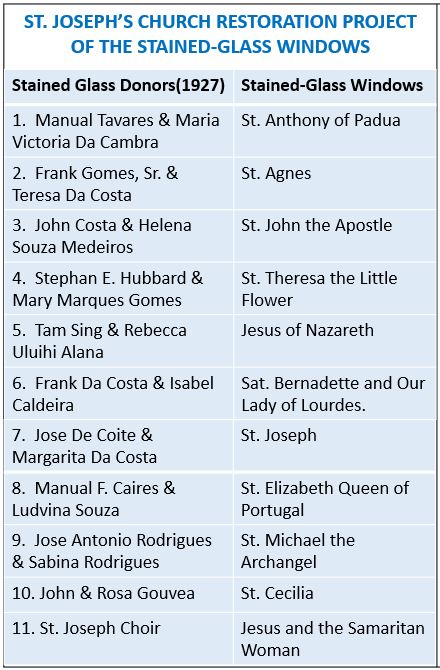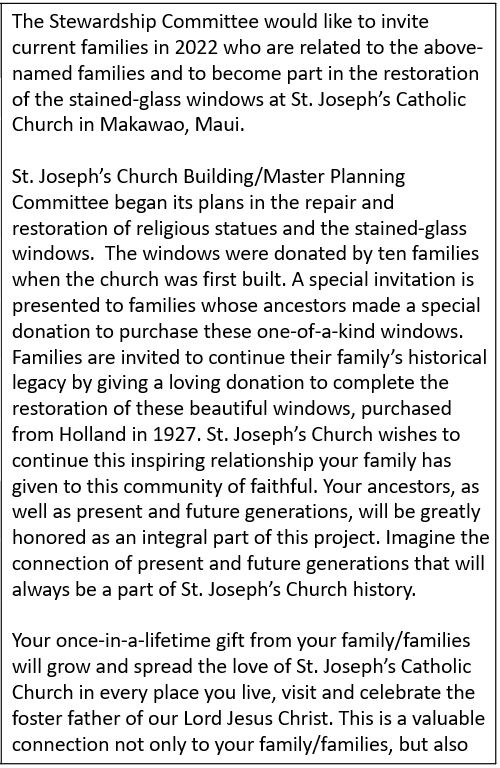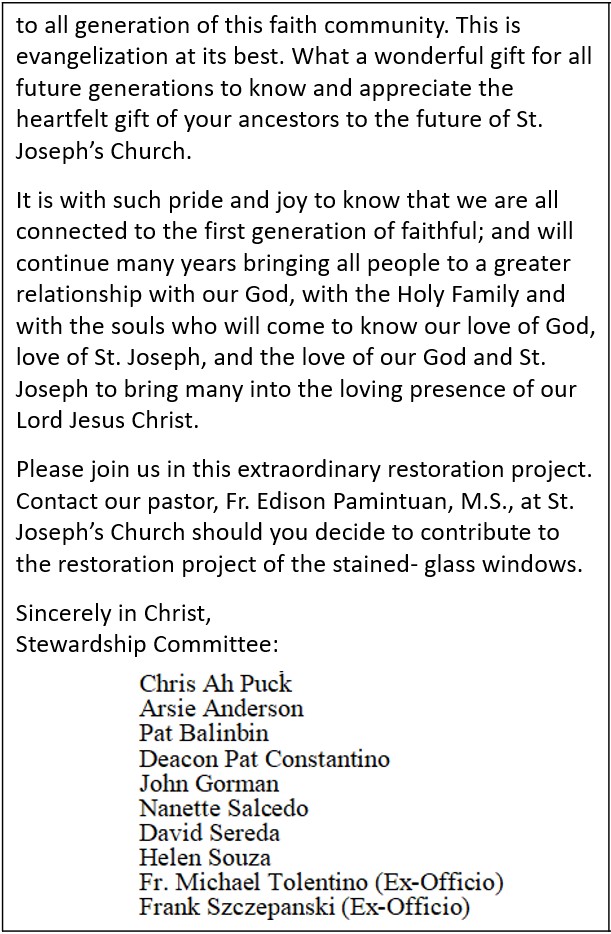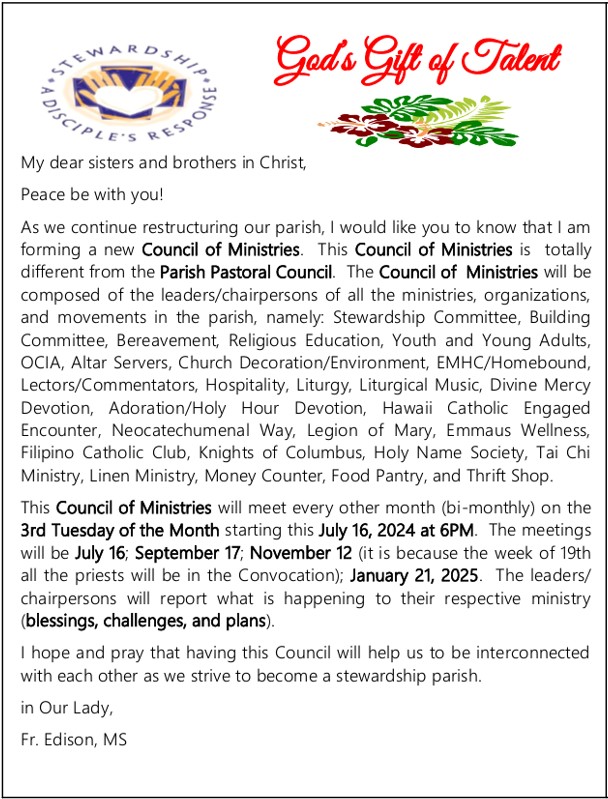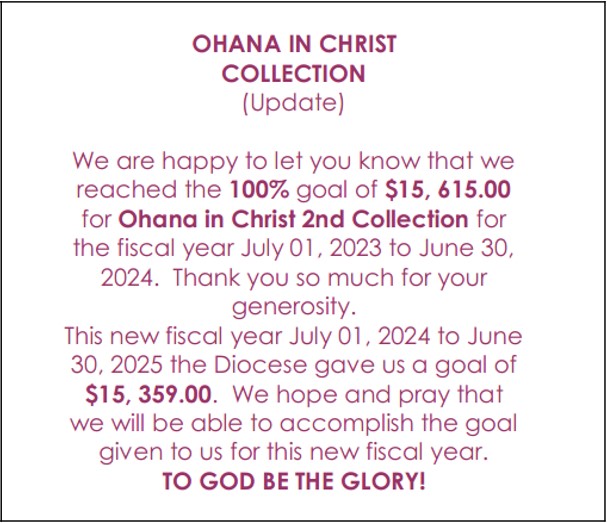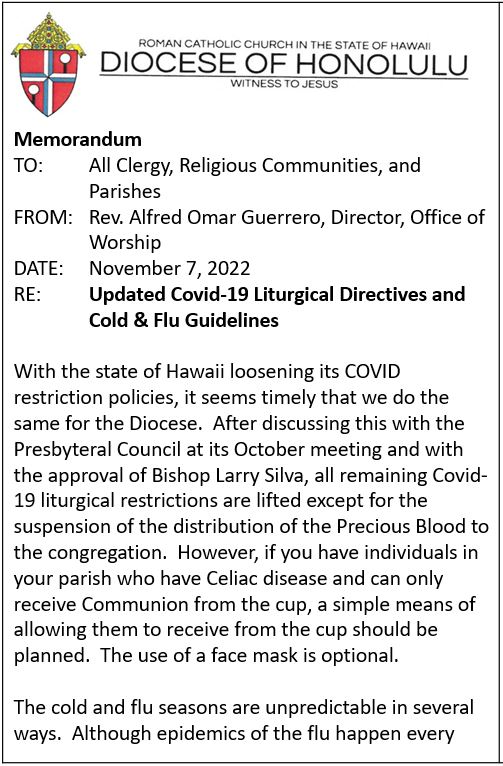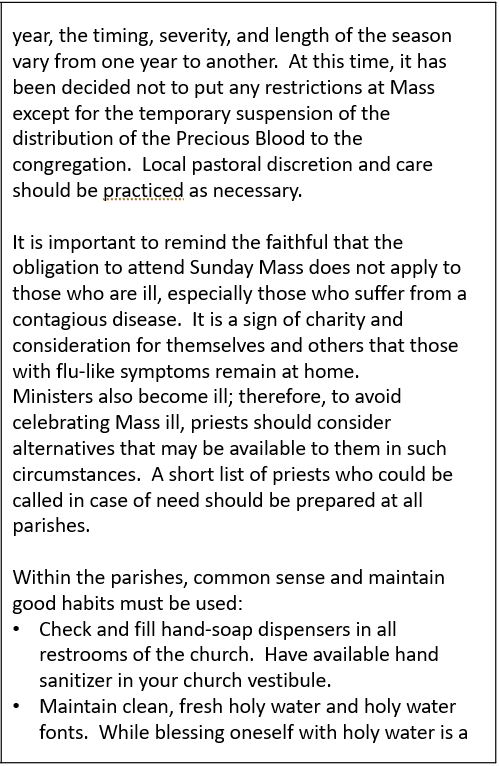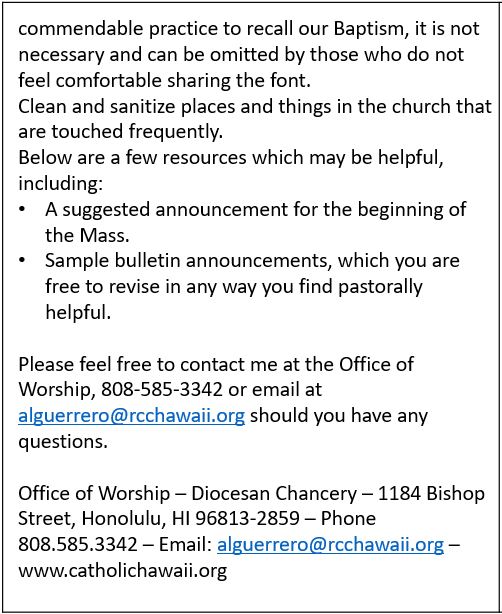6TH SUNDAY IN ORDINARY TIME
February 15, 2026
REFLECTION ON TODAY'S READING
Striving for Perfection
On this Sunday, close your eyes and review your week. Begin the day by recognizing that Jesus walks beside you.
“I have not come to abolish the Law, but to fulfill it.” (Mt 5:17)
Remember that God’s Law expresses the ideal of perfection that dwells in the human heart. Those who live according to the commandments not only fulfill their deepest desires, but also move toward the perfection of the Kingdom of Heaven.
Offer your prayer of offering.to the Lord.
Under the directive from the Diocese of Honolulu
St. Joseph Church has set up an egiving program to allow parishioners and guests an easier way to give. It will also allow the donors to: 1. Give from anywhere using a computer, tablet, or smartphone. 2. No need to find a check or stop by the ATM. 3. Use your Checking/Savings Account or your Debit/Credit Card. 4. Schedule gifts to occur automatically. Click on the give now link or on your phone using my parish app. “All must give as they are able, according to the blessings given to them by the Lord your God.” Deuteronomy 16:17
Online donations may be made at any time from the comfort of your own home or any place with internet access. Online donations are credited to your tax statement for the end of the year (except when made anonymously)and you can change your account preferences and donation amounts at any time.
Saint Joseph Church Makawao - Bulletin
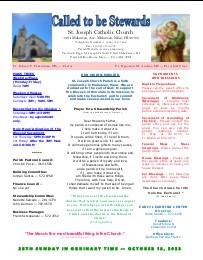





The Gospel Reading, Matthew 5:17- 37
I have not come to abolish the law and the prophets but to fulfill them. .
Matthew continues the Sermon on the Mount with a three part instruction by Jesus on the Way of Life in the kingdom of heaven. Today’s reading is part one and deals with the Law. Part two deals with worship and religious practice and contains the Lord’s Prayer. Part three deals with trusting God and deeds of loving service to our neighbor.
When Matthew speaks of “the Law and the prophets” he means the whole Scripture. When the Messiah brings the fullness of the kingdom none of scripture will be done away with. Instead it will be fulfilled. Matthew’s Jesus does not overturn the Law of Moses, nor does he set his followers free from the Law. He requires his followers to go beyond the Law by doing more than the Law requires.
The Law condemned murder. Jesus condemns anger. The Law condemned adultery. Jesus condemns even lustful looks. As Jewish Christians who had always been faithful to the Law Matthew’s community need a way to understand the difference Jesus and the kingdom he brings have made. They affirmed that God had always been at work in history through “the Law and the prophets.” But God’s work goes beyond that to be embodied by the Messiah who reveals the definitive will of God. The written scriptures and their interpretation in tradition are surpassed by Jesus whose life and teaching are the definitive revelation of the will of God.
—
(https://www.loyolapress.com/catholic-resources/liturgical-year/sunday-connection )
.
A STEWARDSHIP MOMENT
In today’s Gospel, part of his Sermon on the Mount, Jesus does not speak of replacing the law of the Old Testament. He goes beyond it. He obliges his followers to work at being holier than even the strictest of Pharisees. But the work is not accomplished by following a religious “law,” it requires growing in love for other human beings. Followers of Jesus know they are required to be good stewards of others. In what way will you exercise good stewardship over other people this week?
—— (https://catholicstewardship.com/)
EUCHARISTIC ADORATION OF THE BLESSED SACRAMENT
First Thursday of Every Month. Come anytime between 5-6:30 pm.. All are Welcome!
THRIFT SHOP HOURS OF OPERATION
Every Tuesday from 8am - 12 noon, and every 1st and 3rd Saturday of the month, from 8am-12 noon. Donation drop offs are welcome and greatly appreciated every Monday from 8 - 12 noon, or during normal thrift shop hours.








